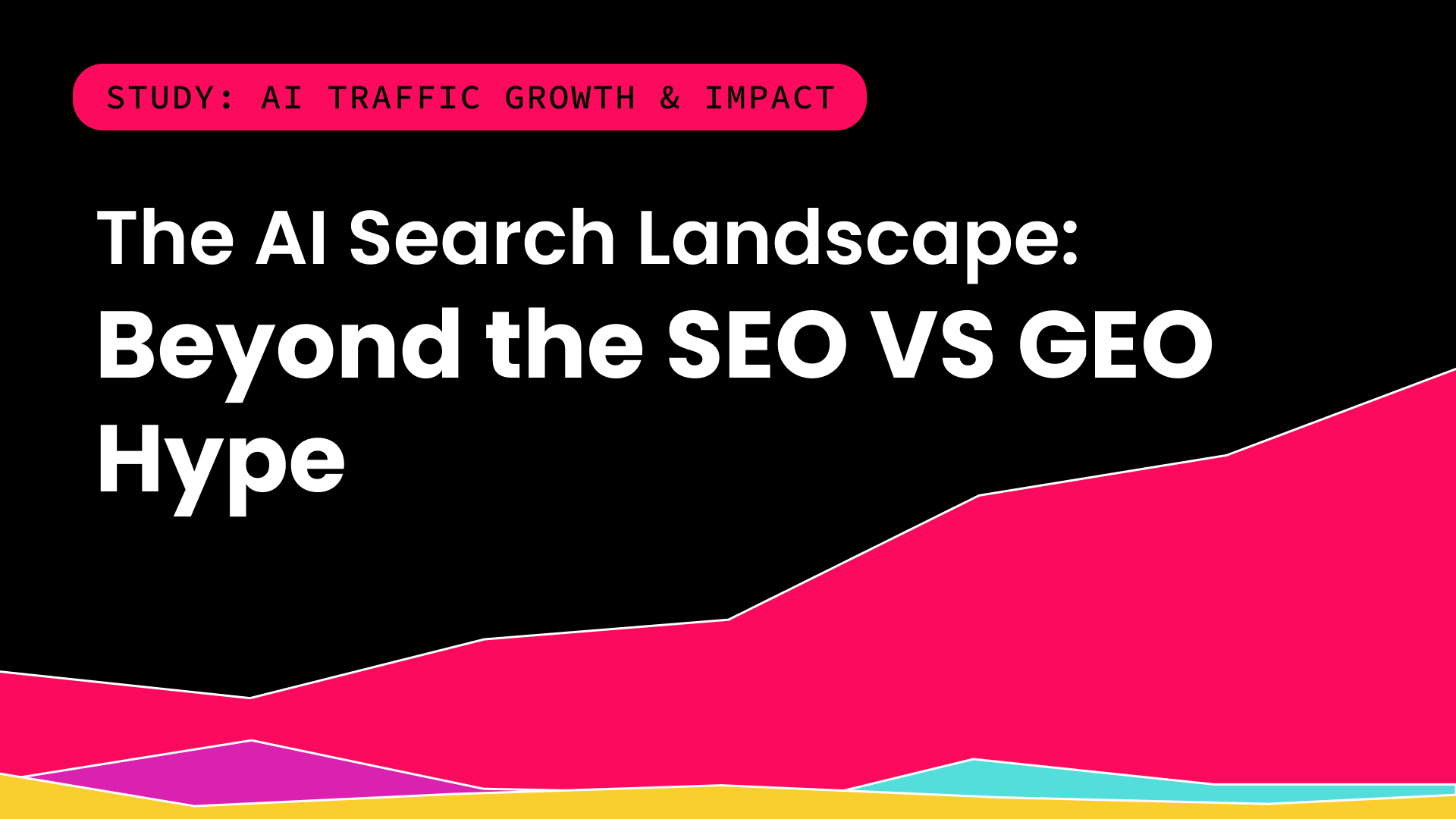You and I both know Google is the king of search—it has been for decades. But new AI Deep Research tools are offering a preview of where the search might be headed - where agents do the searching for you.
I’ve spent time testing both Google’s Deep Research and OpenAI’s Deep Research, and let me tell you—one of them is already proving to be smarter, deeper, and pull reliable search data. And if you're new to AI, it’s not the one you might expect.
Deep Research tools have shifted the way we find information and they’re changing how to think about research itself. I'll just hint that if you’re solely relying on Google rankings and manual SEO research, you’re likely already behind.
Research used to mean sifting through a million links, reading, and location data. But now, Deep Research can actually analyze, synthesize, and refine information for you.
Stop thinking of AI as a tool for finding quick answers. The opportunities with AI are way bigger.
Today’s modern AI tools are here to deliver thorough, strategic research that enables teams to make informed decisions with greater efficiency. This guide will break down exactly how these AI research tools work, which one is winning, and what it means for SEO professionals and digital marketers like you.
Recent developments have introduced two noteworthy AI tools:
Google’s Deep Research and OpenAI’s Deep Research. Both promise to redefine how digital marketers gather competitive insights and academic-level research.
These research tools utilize the power of advanced AI technologies—specifically the convergence of Reasoners (chain-of-thought models that generate extended analytical output) and Agents (autonomous systems programmed to pursue specific objectives)—to offer findings that traditionally required extensive human effort.
Inspired by Ethan Mollick’s article, The End of Search, The Beginning of Research, this guide compares these two platforms and examines their implications for industry practices, particularly for those managing agency-client relationships.
Reasoners and Agents are a Powerful One-Two Punch
2025 AI research tools are founded on two central innovations:
Reasoners
Reasoners employ chain-of-thought prompting to generate preliminary “thinking tokens,” thereby allowing the system to process and refine complex queries before presenting a final analysis. As Mollick notes, the extended duration of this analytical process results in more nuanced and precise outcomes. Legacy LLMs predicted text based on patterns in training data, while new reasoners simulate step-by-step thinking to improve logical accuracy.
Agents
Agents on the other hand, are autonomous systems that work towards defined objectives. While general-purpose agents, such as OpenAI’s Operator, attempt to address a broad range of tasks, current trends indicate a preference for narrow agents that specialize in specific research domains. Yesterday’s LLMs waited for input—today’s agents anticipate, adapt, and execute.
Two of the biggest problems with genAI are autonomy and accuracy. Deep Research tools aim to solve them – they enable autonomous information synthesis and significantly reduce hallucinations.
Deep Research Features and Capabilities
OpenAI’s Deep Research
Built on OpenAI’s o3 Reasoner model, this tool is designed to tackle complex, technical queries. Going beyond data aggregation, it examines issues in greater detail, iteratively refining its approach and even addressing challenges such as paywalled articles.
The resulting output resembles graduate-level research, featuring detailed analysis and meticulously referenced insights.
How to Enable:
Simply select “Deep Research” while chatting with ChatGPT to unlock enhanced research capabilities.
Google’s Deep Research
Powered by the Gemini 1.5 model, Google’s tool excels at collecting a wide array of documents and citations. This broad aggregation produces a comprehensive output—if somewhat surface-level—in a manner comparable to a well-organized undergraduate synthesis.
Google’s Deep Research also incorporates a user-guided planning phase, where a multi-step research plan is presented for review before execution, ensuring that the system’s focus aligns with specific needs. Its integration with Google’s suite of tools makes it particularly attractive for teams already immersed in the Google ecosystem.
Note: Currently, Gemini only uses the 1.5 model for deep research – we'll discuss later how this limits it against ChatGPT.
How to Enable:
Select “Deep Research” from the model dropdown in Gemini to activate advanced research mode.

Google Search vs Deep Research
You might be thinking – isn't this just a fancier version of Google Search?
Sure, Google is still the king of traditional search but Deep Research tools offer a sneak-peek into an agentic-search future.
Google search ranks links based on popularity signals—engagement, backlinks, and content freshness. However, deep research tools retrieve ranked results and provide analyzed, synthesized, and structured insights.
Compare how SEO professionals and marketers actually conduct research:
- Google makes you sift through multiple pages of search results to extract useful data. Are you even sure you're searching for the right things?
- Deep Research tools do the heavy lifting - ideating what to search for, and then structuring key insights into a well-organized report—complete with citations.

The TLDR for content marketers:
- Google tells you what’s popular. Deep Research tells you what’s important.
- Google ranks results. Deep Research builds insights!
Use Cases and Applications
For content marketing, these tools offer distinct advantages, but their strengths vary based on the depth and breadth of analysis needed.
Google’s Deep Research can rapidly compile data on brand entities, providing a broad snapshot of the digital environment that is ideal for quick competitor analysis and trend monitoring.
OpenAI’s Deep Research examines topics in greater detail, uncovering nuanced insights and strategic details that are especially valuable when developing targeted content strategies or engaging in technical research.
Because of their web search abilities, both platforms are capable of tracking industry trends. Strong visibility in organic results will lend itself to visibility in both platforms’ Deep Research. OpenAI’s detailed approach is particularly beneficial when assessing conflicting industry perspectives, whereas Google’s method is suited to capturing emerging trends with speed.
When conducting deep, industry-specific research—such as analyzing competitive landscapes or emerging trends—ChatGPT excels in creating detailed outputs enriched with data synthesis. For broader thematic understanding, trend monitoring, and quick insights into a market space, Google remains a quicker and efficient tool.
Comparing OpenAI and Google’s Deep Research:

Google explicitly markets Deep Research as a way to automate competitor analysis:
- For example, an entrepreneur can quickly gather a report on market competitors or a marketer can research recent industry campaigns using the tool.
- Option to open the AI-generated report in Google Docs with one click, making it easy to share or edit findings.
- This ease of use and integration gives Gemini some advantages for quick SEO workflows (think competitor audits, market research briefs, etc.).
- It also exclusively relies on Google search – which means that results may give insight into what your typical searcher will see in Google's free (non-Gemini) results; which is valuable for SEO's.
However, as you'll see below, the instructions - and output - are much more limited than OpenAI's:

OpenAI’s Deep Research tool isn’t built solely for marketing research, but its broad research capabilities naturally extend to SEO and competitive intelligence:
- It can analyze content strategies, backlink data, or industry trends by pulling from many sources.
- Marketers have noted that Deep Research can accelerate tasks like scanning competitor content, monitoring online discussions (social listening), and even brainstorming ad personalization by analyzing audience forums like Reddit.
- You can ask OpenAI’s Deep Research to “study the top-ranking pages for [your keyword] and report their key strategies,” and it will attempt to gather all relevant info and deliver a summarized analysis with references.
Example: When I asked it to analyze top credit card competitors, it came up with a plan of execution, followed by a 7 minute deep dive into 11 online sources.
The final output was a 41 page writeup, complete with approximately 75 citations.


Accuracy, Reliability, and Data Sources
What you'll hear people assume is that AI tools fabricate information—but that assumption is becoming more outdated.
A key strength of both tools is their commitment to source transparency.
Google’s Deep Research vs. ChatGPT's Deep Research Citations:
- Google Gemini prioritizes broad aggregation—it gathers multiple citations, but the quality varies.
- ChatGPT Deep Research takes a precision approach, sourcing highly structured citations from trusted reports, academic papers, and primary sources.
Regardless of the platform, human oversight remains essential; these outputs serve as robust starting points, which should be further validated before informing strategic decisions.
Methodologically, Google relies on its extensive search infrastructure to retrieve authoritative content, resulting in a wide yet sometimes shallow data aggregation. Conversely, OpenAI’s approach is characterized by a curiosity-driven, iterative process that permits deeper investigation across multiple research angles.
In a direct test:
- Google Gemini provided a broad industry summary, with citation footnotes.
- ChatGPT Deep Research generated 41-page research report with over 75 citations.
The idea that AI research tools are just hallucinating machines is outdated. They’re becoming structured, transparent knowledge engines.
OpenAI's Citations:

Gemini's Deep Research:

Gemini vs OpenAI Deep Research Costs
Gemini Deep Research
For organizations integrated within the Google ecosystem, Google’s Deep Research is offered as part of the Google One “AI Premium” plan, priced at approximately $19.99 per month.
This subscription not only provides access to advanced research capabilities but also facilitates seamless integration with other Google Workspace tools.
You can try it out over a free trial period before committing to a monthly plan, and test it for yourself on a few research projects.
OpenAI Deep Research
Is currently available only through the ChatGPT Pro subscription, which carries a premium cost of around $200 per month.
This higher price point aligns with the advanced functionality of the tool, including its capacity to generate detailed, academically rigorous reports replete with high-quality citations.
Unfortunately, this price point will limit individuals from trying ChatGPT's Deep Research, as it's best suited for enterprises or organizations investing in more sophisticated outputs.
But, there's good news – OpenAI CEO Sam Altman, has said on X that soon you'll be able to use ChatGPT's Deep Research for free!

For now, the cost differences between the two services underscore the trade-offs between breadth and depth. Google’s offering is designed to deliver broad, efficient overviews suitable for rapid analysis and trend monitoring, while OpenAI’s tool provides a more elaborate and meticulously referenced output, justifying its currently higher investment for tasks that demand rigorous, technical scrutiny.
Which Deep Research Tool to Use?
Choosing between OpenAI’s and Google’s Deep Research depends on your specific needs and the depth of insight required.
OpenAI’s Deep Research offers a level of depth and detailed academic insight that is particularly well-suited to addressing complex, technical inquiries. Its advanced reasoning capabilities and rigorous citation process render it ideal for tasks requiring a high degree of nuance.
Google’s Deep Research, on the other hand, does deliver a broad, efficient overview, and can integrate with your Google suite—it's a suitable choice for rapid competitor analysis and trend monitoring.
For SEO and digital marketing professionals, the decision between these tools should be guided by the specific requirements of the task at hand. For nuanced, detailed analysis, OpenAI’s approach is preferable; for a fast, broad overview, Google’s tool can get the job done.

Our Recommendation
- Need a research assistant for deep, strategic insights? → OpenAI’s Deep Research
- Need a quick AI-powered competitor snapshot? → Google’s Deep Research
AI is transforming how SEO professionals and digital marketers approach research, strategy, and competitive analysis. Whether you need rapid market intelligence with Google’s Deep Research or deep, structured insights from OpenAI, the key is knowing how to leverage these tools effectively.
Want our latest AI research, industry insights, and expert strategies delivered to your inbox? Subscribe to our newsletter to get exclusive updates on emerging AI tools, search trends, and how to future-proof your digital marketing efforts.



